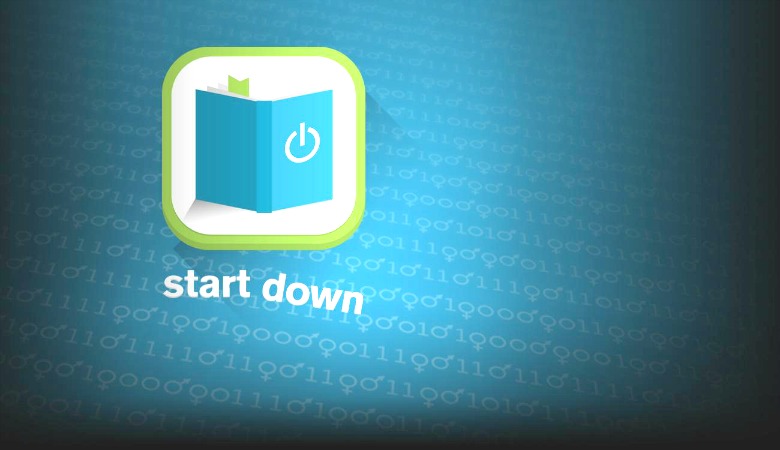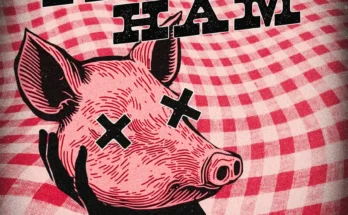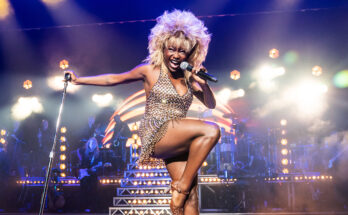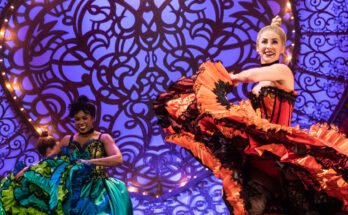The world premiere of “Start Down” runs through March 6 at the Alliance Theatre’s Hertz Stage.
::
“IF YOU DON’T KEEP CHAMPAGNE in the fridge, then you don’t think you deserve to have anything good happen to you.”
That’s just one handy real-life tip you’ll find in Eleanor Burgess’ comic drama Start Down, the 2016 winner of the Alliance/Kendeda National Graduate Playwriting Competition. Such lines provide pleasant counterpoint to the bantering and bickering her “brogrammers” do while hatching their ambitious tech startup.
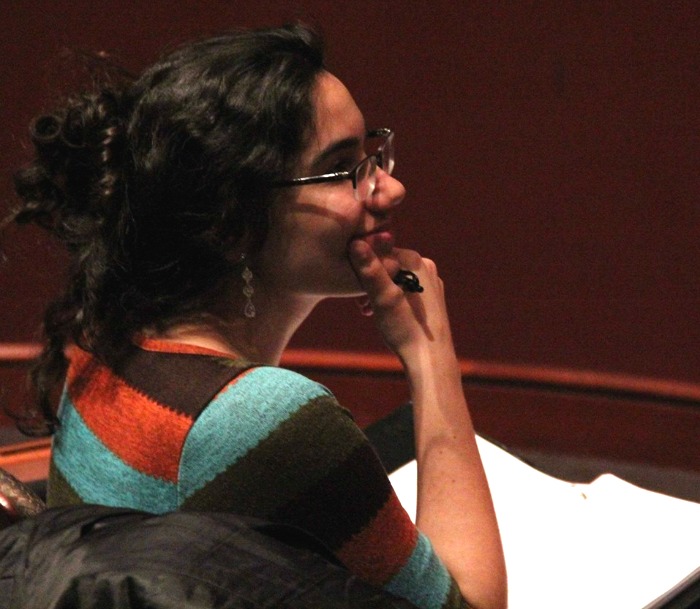
Does Burgess believe that advice?
“Totally,” she says.
When she learned her piece had been chosen from 72 submissions as this year’s Alliance/Kendeda winner, she went to her fridge and opened the bottle of bubbly waiting there.
“I’m incredibly superstitious,” Burgess says. “I am convinced that keeping champagne in the fridge helped. When I got the call from the Alliance, I had to drink that champagne and thank it.”
THE KENDEDA PRIZE brings with it a prodigious benefit for any up-and-coming playwright: The Alliance gives the winning script a full-scale production in the 200-seat Hertz Stage — not a workshop, not a staged reading — and helps the playwright make the transition from student to professional. It’s the only program of its kind in American regional theater.
Burgess, 31, is a “writer to watch, and the Alliance is lucky to be working with her at the beginning of a terrific career,” says Celise Kalke, the Alliance’s director of new projects. Kalke has been involved in the shaping of Start Down for the past year. The process included a reading as part of the Alliance’s Institute for Educators in June, and more work at the M.F.A. Playwrights Workshop at the Kennedy Center for the Performing Arts in Washington, D.C.
[LEARN MUCH MORE ABOUT ELEANOR BURGESS HERE]
Kalke praises Burgess for having the guts to dive into a divisive issue: how we live, how we educate our children and our core values around technology.
If you don’t have a child in the public school system, you likely don’t know what’s happening in classrooms, Burgess says. “I want the play to be saying, ‘Hey, change is happening, let’s look at what’s going on, and let’s combine the best of what tech has to offer and the best of what teachers have to offer.’ ”
More comedy than drama, Start Down brings to life with style and wit the culture and roller-coaster process of tech startups, Kalke says, without bogging down in detailing logistics.
FOR BURGESS, it’s been a quite a journey. She’s had to delve into myriad issues of the education-tech controversy and discover the nuances of the play. “With this big topic, you’re also talking about class and gender and race and humor and personality. So exploring all those nooks and crannies has taken a while.”
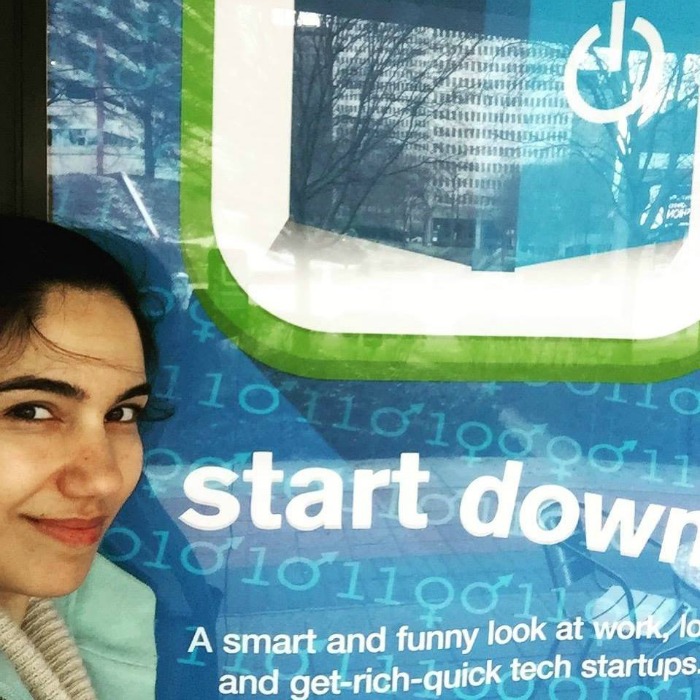 But she knows the territory. Her husband is co-founder of a startup called HireArt, an online recruiting platform. She herself has a day job as the website manager for a nonprofit foundation in Manhattan.
But she knows the territory. Her husband is co-founder of a startup called HireArt, an online recruiting platform. She herself has a day job as the website manager for a nonprofit foundation in Manhattan.
Start Down features two couples, four players impacted by the startup of an ed-tech platform called “Personal Classroom.” In each couple, the woman is an overworked teacher. Burgess knows that turf. She majored in history at Yale College and taught high school before earning her M.F.A. in dramatic writing from New York University’s Tisch School of the Arts.
The idea for Start Down began to ping for Burgess, who has written three other full-length plays, when her husband was working on HireArt in Mountain View, Calif., in the Silicon Valley-land of startups.
She became fascinated with the way tech people talk to one another.
“They are some of biggest optimists in the world,” Burgess says. “They really believe that there’s a solution to so many human problems and that things can get better and that they will be the ones who make them better.”
She was also struck by their energy. “It’s really something, to be around a whole city full of people who want to change the world and who also want to get rich and who don’t necessarily think that there’s a conflict between wanting to save the world and wanting to get rich.”
START DOWN CONTAINS smart, snappy dialogue that may make playgoers feel as if they’re in the room where the ed-tech debates happen.
“For me, the dialogue is the most natural part,” Burgess says. “When I am being really facetious and jokey, I sort of refer to that Malcom Gladwell idea of 10,000 hours” — that it takes roughly that long to become a master in any field. “I love conversation and dialogue in general. I’m someone who does a lot of talking; it’s very natural and it’s what drew me to writing plays. I’m not one of those playwrights who could also write novels.
“I’m so interested in what people say — and what they don’t say. And how they speak to each other and what exactly it sounds like when someone’s excited, or uncomfortable. I love how different people talk in their own unique ways. I mean I really love exploring where a conversation takes off, where it sputters.”
Is Start Down a cautionary tale?
“I hope that the play is a question-raising tale,” she says, adding that it was important to her to be fair to both sides of the issue.
“I never wanted to write a dystopian let’s-be-afraid-of-technology play because that would be an oversimplification. I mean, we all spend too much time on our phones, so there must be something we do love about it!”
[HEAR FROM NEW AMERICAN VOICES IN KENDEDA’S 4 FREE READINGS]

